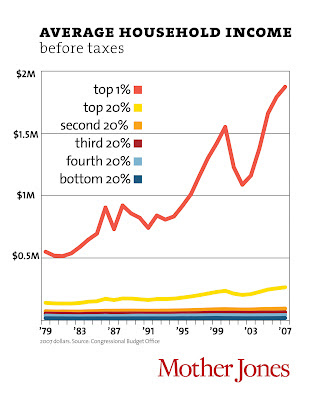Leaders of the Newark Teachers Union faced a barrage of criticism from rank and file members tonight over the historic three-year contract signed Friday that, for the first time, will offer annual bonuses of up to $12,500 to top teachers.That is, of course, as it should be. Labor unions are democratic institutions, and collective bargaining only works if the majority of the collective supports it. Del Grosso should bring this to his members; if he feels this is the best deal the district/state is willing to give, it's best to put it in front of the rank-and-file and let them have their say.
Many of the teachers and school employees who spoke during the meeting at the New Jersey Performing Arts Center urged fellow members to reject the contract when it is voted on by the union’s 3,300 members on Monday.
"It’s not everything I wanted, and it’s not everything you deserve," union President Joseph Del Grosso told the 1,000 people who gathered tonight. "You’re going to vote on it, so it’s in your hands."
A quick point about bargaining: in these situations, the local chooses a bargaining committee, composed of several rank-and-file members. This group goes into negotiations, but they keep the terms of the bargaining secret from the rest of the local. The idea is that bargaining in public is always a disaster: better to put a fully-formed proposal before members so they can vote.
The problem is that negotiations can drag on for years, as they did in Newark. Members feel left in the dark, grow fearful of what will happen, trade in rumor-mongering... and then, out of nowhere, an agreement is dropped into their laps. It's frustrating for members, exasperating for leadership, and lousy for morale.
It's also great for the district's negotiators: as long as the schools are open and functioning normally, the public doesn't much care whether the teachers have a contract or not. Only the threat of work actions will make the public pay attention, which, of course, causes them to resent the teachers.
It's a terrible system for unions... but I can't think of a better one. Can you?
Anyway, back to Newark:
Teachers complained the $5,000 annual bonuses offered for teachers rated ‘highly effective’ according to a new four-tiered evaluation system will be impossible to attain. Others expressed fears that merit pay would pit one teacher against another and diminish the overall quality of education.Not only that: errors are inevitable. If anyone could show that student achievement will increase thanks to merit pay, it might be worth it. Of course, they can't. So why do it?
"It’s going to be all about me now because money talks," said one teacher. "If it’s between her and I, I want that money for myself, I want it in my pocket."
There is a group of Newark educators resisting the contract called the NEW Caucus; they have a Facebook page that links to their analysis of the contract. They correctly point out that the contract moves the membership back on to the traditional step-guide - but that move comes at a price. Are the teachers of Newark willing to pay that price? We'll see.
Oh, there's one more thing in this article that makes me insane:
Union member George Worsley said he worked for non-profits before becoming a social worker in the district six years ago and does not expect the same regular raises his fellow teachers clamored for.OK, look: we all know it's bad out there. It's not like teachers, with our salaries that haven't kept pace over the long haul with the private sector, don't feel the strain. But the problem isn't that teachers have it so good; it's that so many people in the private sector now have it so bad. And, if we are going to be honest with ourselves, it's obvious why that is:
"At my old job, we had no contract, and we took what we were given," Worsley, 60, said. "I know everyone is frustrated, but we have to look at the economy and think about how much extra money is really available to give."
Of course, it's "class warfare" to point this out. But teachers beating up their colleagues over five-figure salaries? Yeah, no problem...

No comments:
Post a Comment